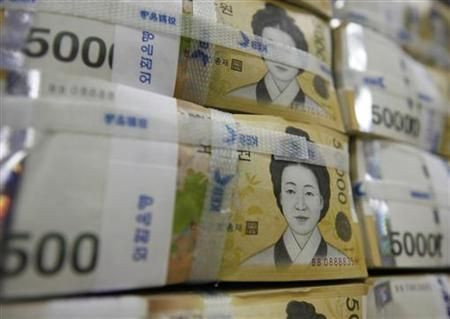South Korea’s Industrial Production Rises 0.8% In September

South Korea’s industrial output rose in September compared to that in the previous month, ending the period of contraction for the last three months, indicating that there is hope that the country’s economy is reviving in spite of the soft global demand.
According to the data released Wednesday by the Korea National Statistical Office, industrial production, which measures the change in the total inflation-adjusted value of output produced by manufacturers, mines and utilities, rose 0.8 percent in September up from a 0.9 percent decrease in August on a seasonally adjusted basis. In July and June, the industrial production dropped 1.9 percent and 0.6 percent respectively.
On yearly basis, the industrial output rose 07 percent in September compared to the same period last year, up from a 0.3 percent rise in August.
This report comes after it was reported by the Bank of Korea (BoK) Tuesday that the current account surplus, which measures the difference in value between exported and imported goods, services and interest payments during the reported month, fell to $3.09 billion in September down from $4.31 billion in August on a seasonally adjusted basis.
The goods account surplus rose to $5.64 billion in September up from $2.51 billion in August with increase in exports of electronic products and automobiles. Meanwhile, the services account returned to surplus $0.32 billion in September up from $0.26 billion deficit reported in August.
Earlier this month, the BoK reported that the country's economic growth slowed down to a three-year low of 0.2 percent in the third quarter of this year compared to 0.3 percent in the previous three months.
Last month, the BoK reported that South Korean manufacturing BSI Index for September was at 75. A reading below 100 is an indication that the number of firms that see the business conditions deteriorating is more than that of those that see an improvement.
Earlier this month, the central bank cut its policy rate by 25 basis points to 2.75 percent in an attempt to rejuvenate the economic growth momentum. Market players feel that the BoK will have to further cut the interest rate this year as global growth is expected to remain subdued not just for the remainder of 2012 but also in 2013 with the euro zone crisis likely to escalate.
© Copyright IBTimes 2024. All rights reserved.





















